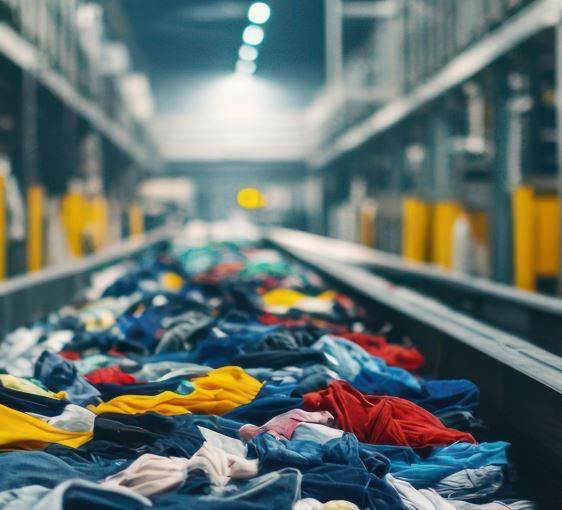Autosort for Circular Textiles initiative publishes findings

The Autosort for Circular Textiles Demonstrator (ACT UK) programme has published its final report, outlining what it describes as a blueprint for establishing the UK’s first Advanced Textile Sorting and Pre-processing facility.
The project was coordinated by UK Fashion and Textile Association (UKFT) and Circle-8 Textile Ecosystems, with input from companies including Marks & Spencer, Tesco, Pangaia, New Look, Reskinned, Salvation Army, Oxfam, Textile Recycling International, Shred Station, Worn Again Technologies and English Fine Cottons.
The consortium was set-up to define how a national infrastructure could turn non-rewearable textiles (NRT) into feedstock for fibre-to-fibre recyclers. Its core aim is to prepare the UK market for a circular system that keeps textile resources in use and out of landfill.
Trails included testing the general public to see if they could pre-sort clothing into wearable and non-wearable clothing via clothing banks or post. A trial by Salvation Army, with clothing banks at Tesco stores, showed that even though having an NRT bank increased the volumes of textiles collected, citizens were unable, overall, to successfully pre-sort these. SATCoL intends to extend the trial for a further six months at Tesco and HWRC sites to assess impacts over an extended time period.
For Oxfam’s postal bag trial, 9,777 bags were requested with 2,460 bags returned, containing over seven tonnes of post-consumer textiles.
The report also looks into machinery, sorters, locations and types of recycling, offering suggestions, solutions and outlining the challenges.
UKFT CEO Adam Mansell said: “This report shows what is possible when industry works together, and it sets out a clear route forward.”






